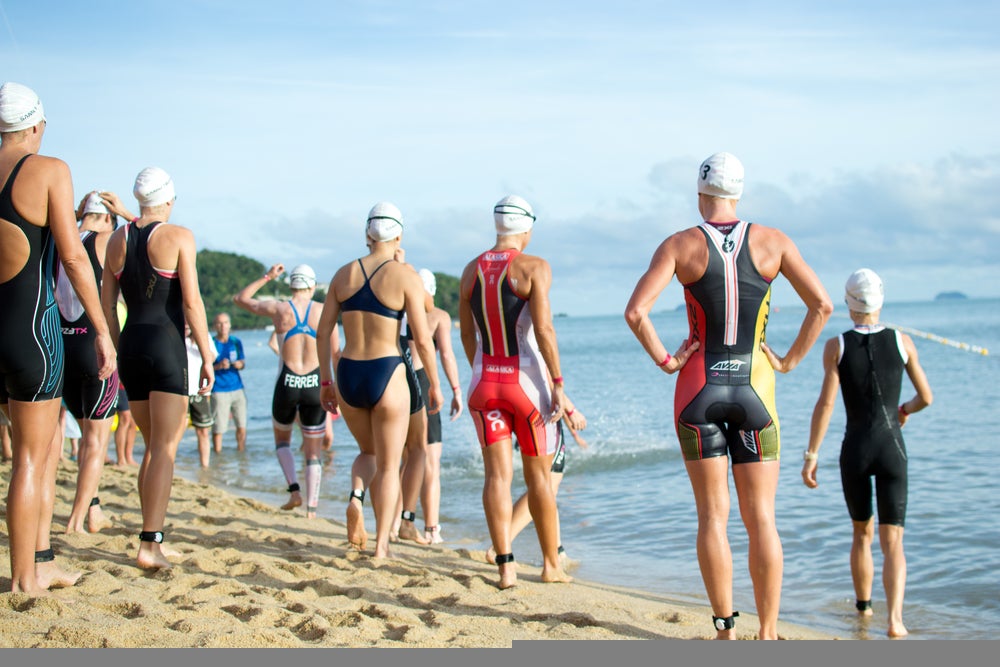Identify and Address Your Weakest Triathlon Leg

Photo: <a href="http://www.shutterstock.com/gallery-723346p1.html?cr=00&pl=edit-00">ARZTSAMUI</a> / <a href="http://www.shutterstock.com/editorial?cr=00&pl=edit-00">Shutterstock.com</a>
Now is the time to plot your gameplan for a PR season. Here are some sport-specific thoughts to consider in order to identify—and address—your weaknesses.
Swim
Your skill set needs to be versatile. Consider whether you have speed, strength, threshold fitness (time-trial pace) or endurance. Speed will help you to start out faster and find clear water or feet in a draft. Strength will help you in choppy conditions and with sighting. Threshold pace will allow you to maintain a good rhythm through the middle portion of the race, while endurance will help you hold a higher pace for longer. Technically, learn to understand how you move in the water and what your biomechanical areas of need are. Film your stroke and work with a coach to create drills to refine your technique, and commit to consistent time spent working on technical skill.
RELATED: Identify And Conquer Your Swim Weakness
Bike
Cycling demands in triathlon are often race-dependent. You may need to work on long, steady climbing or short, steep bursts. These are all components of strength, threshold and anaerobic capacity. Evaluate how you time trial on the flats while maintaining rhythm in one gear at a fixed cadence. Consider your sprint speed, your ability to tolerate lactic acid and bursts above threshold. This speed is useful for crowded races, where you need to be able to shift pace to make passes and drop out of the draft zone. Also, some athletes struggle with replicating race-day output compared to training efforts. If this is you, try bringing your bike trainer to the pool and performing swim-bike interval repeats.
RELATED: Bike Smarter To Run Stronger
Run
Running off the bike is significantly different from running at the track. Gait should be linear and in a forward motion, with foot strike underneath the center of gravity. Posture is tall with a slight lean forward at the hips and shoulders, simultaneously. Be alert to excessive upper-body movement, too much bounce in your run stride or unnecessary side-to-side motion. Assess whether your form changes off the bike compared to regular running. Check your run cadence—it should be around 85–100 strides per minute, counting off one foot strike. Compare your hill strength to flat rhythm running, and your endurance in ratio to threshold and sprint speed.
RELATED: 5 Ways To Become A Faster Runner
Mental Training
Periodize your mental training. Early season is about creating a positive training environment and consistent emotional zone. As you approach race season, it should shift to increased emphasis on visualizing technical expertise and mental preparation for dealing with hard efforts. Create emotional and focus goals for practice. Learn how to create race-course simulations in your local training environment, or travel to the location of your big event to train on the course, and create strong images of effort and expertise on each individual section. Create strategies to quickly refocus when things are not going according to plan, or if you are thrown a curve ball.
For more from Lance Watson, check out his “Coach’s Note” column every month on Triathlete.com.
Lance Watson (LifeSportCoaching.com) has coached a number of Ironman, Olympic and age-group champions and enjoys working with athletes of all abilities.